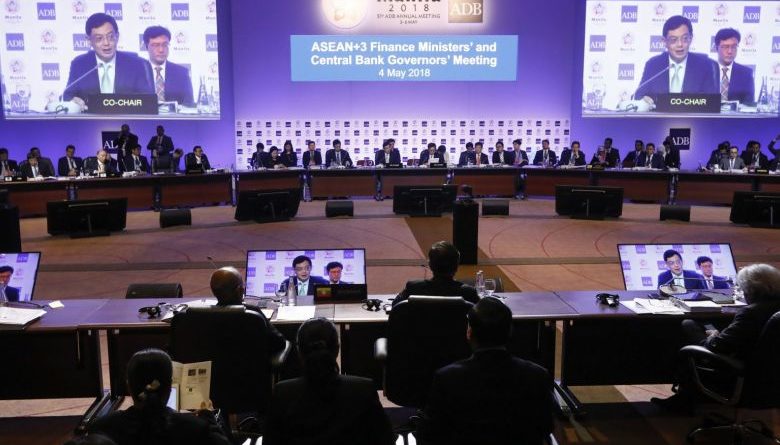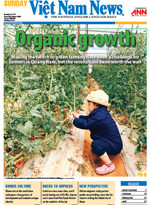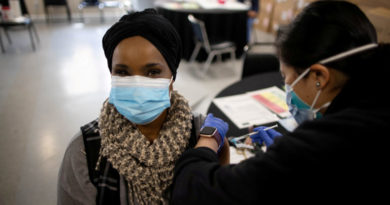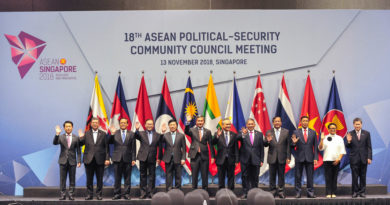ASEAN DEVELOPMENT BANK (ADB): MANILA – Asean+3 finance chiefs, central bank governors vow to resist protectionism
Officials hold the Asean+3 Finance Ministers’ and Central Bank Governors’ Meeting in Manila, the Philippines, on Friday (May 4).
.
.
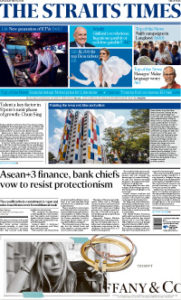 MANILA – The finance ministers and central bank governors of Asean and three East Asian partner countries vowed on Friday (May 4) to push back against protectionist measures that they warned could derail world economic recovery.
MANILA – The finance ministers and central bank governors of Asean and three East Asian partner countries vowed on Friday (May 4) to push back against protectionist measures that they warned could derail world economic recovery.
“We… recognise the importance of resisting all forms of protectionism,” they said in a joint statement issued at the 21st Asean+3 Finance Ministers’ and Central Bank Governors’ Meeting here.
Asean+3 refers to South-east Asia’s 10 economies, China, Japan and South Korea.
The ministers and central bank governors reaffirmed their commitment to an “open and rules-based framework for multilateral trade and investment”.
They warned that protectionism and other risks from a faster-than-expected tightening in global financial conditions and tensions arising from conflicts in places like the Korean peninsula, “could induce large capital outflow and financial volatility in our region”.
The Asean+3 Macroeconomic Research Office (Amro) said on Thursday that protectionist measures the United States was lining up against China, the European Union and its other major trading partners could dampen growth in Asia from strong domestic demand, export growth and stable inflation.
China is blaming the US for the trade frictions, amid escalating threats of tariffs on billions of dollars worth of goods between the world’s two biggest economies.
“While the near-term impact is yet to be seen, escalation of trade conflicts is clearly negative, posing longer-term downside risks for regional economies whose growth models are based on the global supply chain,” said Amro.
Singapore’s Finance Minister Heng Swee Keat said in earlier remarks on Friday that festering trade rows, as well as new technologies and natural disasters, were among the key challenges confronting Asia, as it seeks to sustain growth.
“Just as global value chains accelerate intra-regional trade and integration, they also magnify the transmission of external shocks,” he said.
This, he added, becomes especially pertinent, as the region faces headwinds from trade disputes.
Mr Heng said new technologies, while offering opportunities, “also present challenges to our economies”.
The finance ministers and central bank governors have voiced concerns over attacks by hackers on the region’s financial systems.
In one of the world’s biggest cyber-heists, unidentified hackers stole US$81 million (S$108 million) from Bangladesh Bank’s account at the New York Fed in February 2016.
The money was sent to accounts at Manila-based Rizal Commercial Banking and then disappeared into the casino industry in the Philippines.
Mr Heng said natural disasters, meanwhile, could undo years of economic gains if nothing is done to address the growing “protection gap” in financing to cover for losses due to catastrophes.
Natural disasters have resulted in over US$1 trillion in economic damage across East Asia from 1990 to 2016, according to estimates by the United Nations Economic and Social Commission for Asia and the Pacific.
Economies with large agriculture sectors were particularly vulnerable.
A drought induced by the El Nino dry spell in 2015 dragged Cambodia’s agricultural production to a near-zero growth of 0.2 per cent.
In 2013, super-typhoon Haiyan cost the Philippines’ agriculture sector US$225 million.
Earlier in the day, Asean’s finance ministers met to discuss setting up South-east Asia’s first “catastrophe risk pool” which aims to narrow the “protection gap”.
The South-east Asia Disaster Risk Insurance Facility (Seadrif) is a step forward to bridging this gap, said Mr Heng.
If something unfortunate happens, Seadrif will relieve the burden on governments because it can provide financing for losses to cover such an event, he said.
Seadrif taps the reinsurance industry for funding arrangements that can provide participating countries hit by natural disasters with rapid-response financing.
Mr Heng said Singapore would contribute financial support to the pool, which should be in place next year. /
PUBLISHED / MAY 4, 2018, 12:28 PM SGT / UPDATED / 8 HOURS AGO / Raul Dancel Philippines Correspondent
.
ASEAN HEADLINES
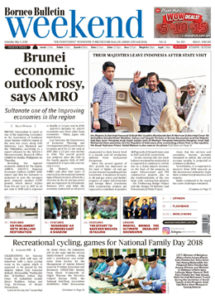



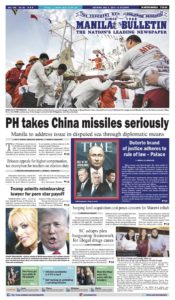
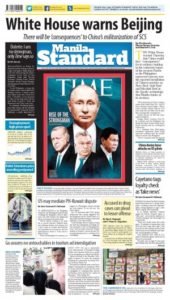

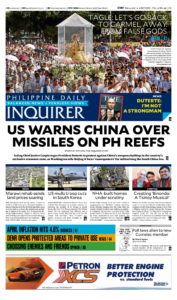
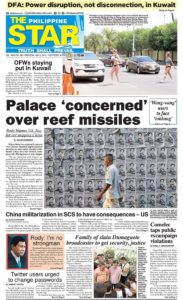

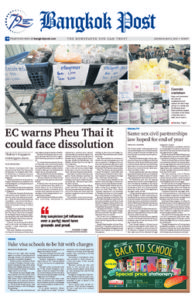

All photographs, news, editorials, opinions, information, data, others have been taken from the Internet ..aseanews.net | [email protected] / For comments, Email to : Aseanews.Net | [email protected] | Contributor:-

